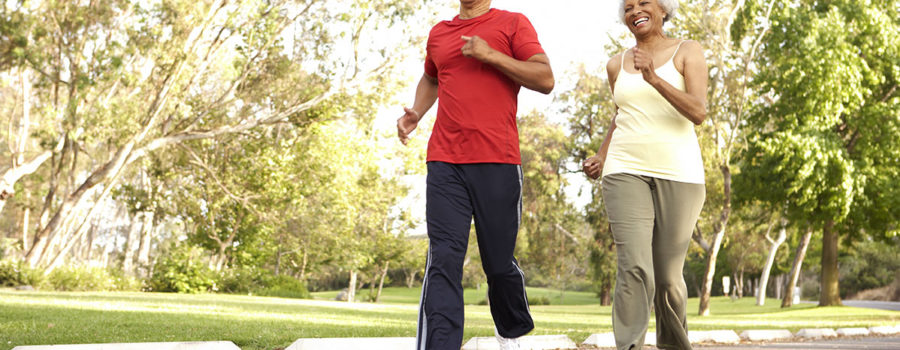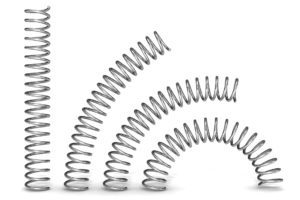I recently played in a golf tournament with an 85-year old woman. She consistently drove the ball about 125 yards down the middle of the fairway on each hole. I watched in awe as she chipped close to the pin without fail and reliably one- or two-putted on each green. Although her golf skills were remarkable, I was more impressed by her generosity of spirit, her wry sense of humor, and the sheer enjoyment at which she approached the game and life itself. During the round of golf, I learned that she had recently lost her husband, left her home and friends to relocate to a totally new country, and moved in with her daughter. While feelings of loneliness and melancholy might have resulted, instead she conveyed an incredibly positive attitude and a genuine kindness to others. At the end of the round of golf, I thought “Wow, at 85, I want to be like that.”
We know that the aging 78 million baby boomers in the U.S. (born between 1946 and 1964) are contributing significantly to the country’s burgeoning health care costs. Over the next 18 years, 10,000 people in the U.S. will reach age 65 every day. According to the Center for Disease Control and Prevention, eight in 10 of us will face at least one chronic illness, such as heart disease, cancer, dementia, Parkinson’s disease, rheumatoid arthritis, or osteoporosis, just to name a few.
Can we do anything to prevent these conditions? Why do some people seem to lead a life of good health and well-being while others succumb to these chronic illnesses? Is it just good fortune? Good genes? Both? Research suggests that by adopting the following five practices, we can maintain the quality of our life well into our 80’s and slow down the aging process:
- Move—Much has been written about the benefits of exercise, yet many of us continue to lead totally sedentary lives. Work and family demands conspire to leave little time for regular workouts at the gym or routine jogs during a busy workweek. However, one of the keys to healthy aging is daily physical exercise—a minimum of 30 minutes a day. As Chris Crowley and Dr. Henry S. Lodge write in their book, Younger Next Year, we were built, from an evolutionary perspective, for much more activity and movement than we’re currently getting. Daily exercise must be a priority if we want to avoid the decay of our bodies. If 70% of chronic diseases are due to our lifestyle, then we have to get up and move more. Walking is a good way to start.
- Eat Smarter—Michael Pollan in his book, In Defense of Food, advises readers to “Eat food. Not too much. Mostly Plants.” Along with exercise, what and how much we eat is key to healthy aging. Many Americans eat too much and consume too much processed junk food to maintain good health. By 2030, 40% of Americans will be obese. The right food can help strengthen your body. By consuming more fruits and vegetables and whole grains, and less preservatives, sodium, sugar, and artificial flavoring, we can help reduce the likelihood of type 2 diabetes, cardiovascular disease, stroke and, yes, certain cancers. A healthy diet does not necessarily cost more or take more time to prepare; however, it does take an adjustment to our dietary habits and tastes.
- Stay Engaged—As we age, we often think about how we’re spending the bulk of our time. Do we want to keep working? Do we want to retire? If we retire, what do we do with our time? No matter what path you choose—or even if the choice is made for you—it’s critical to find something to keep your mind and your spirit engaged. It may be paid employment, volunteer work, or perhaps a hobby. To stay healthy as we age, we need to find our passion—something that gives us meaning and satisfaction—so that we continue to grow and learn. Research has shown that our brains continue to grow and change throughout our entire lives—well into our 90’s—through a process of ‘neuroplasticity.’ Self-reflection and a willingness to explore possibilities can help to discover one’s passion.
- Think Positively—No one gets out of this life alive. This awareness of the inevitability of death distinguishes human beings from other animals. Yet, how we spend the time we have on this earth is up to us. As we age, it is easy to become self-obsessed with negative thoughts that sap our energy and sabotage our well-being. Becoming aware of those negative thoughts and replacing them with positive ones is an act of mindfulness. It takes practice and discipline. A positive attitude can help build resilience and enable us to face the inevitable struggles of life.
- Love—The more we love, the more we become the recipients of love ourselves. Sometimes this starts with loving ourselves first and not being so judgmental and critical of others. Forgiveness is an essential element of love—forgiving ourselves of any perceived failures and forgiving those who may have wronged us in the past. As we age, acts of loving kindness can be bring us greater peace and well-being.
These five practices seem simple but they are not easy to maintain. Like many lifestyle changes, they take commitment and persistence. For me, if I make it to 85 and can enjoy life like my golfing partner, it will be worth the effort.





Leave a Reply
Your email is safe with us.